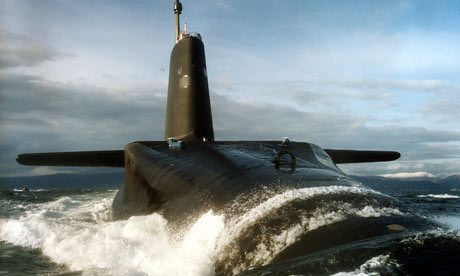A one billion pound ($1.57 billion, 1.24 billion euro) contract to build reactors for Britain’s next generation nuclear submarines is set to be announced this week, a report said on Sunday.
Defence Secretary Philip Hammond will unveil the reactor deal for a new class of submarines slated to replace the current Vanguard fleet carrying Trident nuclear missiles, according to the Sunday Telegraph.
The Ministry of Defence (MoD) will fund an 11-year refit of a Rolls-Royce plant at Raynewsway in Derby that would be building two reactor cores, one for the Royal Navy’s seventh Astute class attack submarine and the second for a new ballistic missile submarine.
“What we’re going to be announcing is a commitment to the major refurbishment of the plant at Rolls-Royce in Derby which builds these core reactors, not just for the nuclear deterrent submarines but also for our attack submarines, the Astute class submarines,” Hammond told the BBC.
“So this is sustaining a sovereign capability in the UK and some very high-end technical skills in the UK for the next 40 or 50 years.”
The announcement is expected to create a rift in the coalition government with Liberal Democrats opposed to “like for like” replacement and wanting to seek cheaper alternatives to maintain nuclear weapons.
The Conservatives, however, remain committed to a full renewal of the navy’s nuclear deterrence which might cost the country up to £20 billion.
The four Vanguard-class submarines, based at the Faslane naval base on the Clyde, are expected to be decommissioned in the late 2020s but their Trident II D-5 missiles will remain operational until 2042.
Hammond, last month, awarded contracts worth £350 million to British companies to design the next generation submarines though the final decision on replacements and their numbers won’t be taken before 2016.
“This government is committed to maintaining a continuous submarine-based nuclear deterrent and announced last May that design work would begin to replace our existing submarines,” a MoD spokesman said.
“Following a Trident value for money study carried out as part of the Strategic Defence and Security Review, we are proceeding with initial work to renew the nuclear deterrent, but a final decision will be taken in 2016.
“As part of the Coalition Government agreement a review is also being carried out into alternative systems for maintaining a credible nuclear deterrent,” he added.










